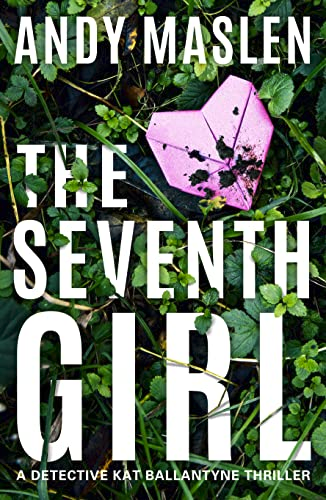I have a book in Amazon First Reads as I write this. Naturally, I am scanning The Seventh Girl’s listings, monitoring the sales rank and also the growing number of reviews. Fives, fine: I’ll read those. Fours? Why not?
Then, there’s a three. From a Vine Voice reviewer: The Cookster. I glance at the opening paragraph. Oh, no. Looks like the reviewer is about to tear my book a new one. (And I don’t mean a cover.) I shy away, preferring the comfort of those four- and five-star ratings. But wait a minute. Could I learn something from that sole three-star?
Gulp.

I start reading. And I discovered something. Yes, this is a critical review. But it’s critical in the way a good editor would be critical. It offers what my old English teacher liked to call constructive criticism.
Are reviews a way to bolster an author’s confidence …
There’s a lot of background to be outlined, and many actors to be introduced, so readers can understand each character’s background and motivations. My reader isn’t convinced by this, but notes approvingly that, as this is the first book in a planned series, a certain amount of character sketching is required.
They go on to say, ‘Andy Maslen clearly excels at creating natural dialogue and social interaction, which ensures that there is a natural flow to proceedings rather than the wooden stiltedness that can arise in some books’.
I’ll have that, as we say in Britain. I like to think I’m good at writing naturalistic dialogue (and have blogged about it), so to have a thoughtful reviewer praise this aspect of my writing is reassuring. Buoyed now, I continue.
The review ends in a similar, thoughtful vein, with this judgment: ‘the strength of the overall impact of the characterization and well-portrayed interaction between the protagonists ensured that the overall impression was a favorable one’.

Obviously, there is nothing I can take from this review and apply to The Seventh Girl. But someone who clearly loves books, and thinks deeply about their writing, has something to offer a writer who wants to improve their craft, which I definitely do.
Maybe the approach is to read the glowing tributes as a way of bolstering one’s always-fragile sense of self-confidence. But search out the longer reviews in the three-and-below categories and read them as one would note from an agent or editor. Unrealistic dialogue? Over-reliance on exposition or coincidence? Unnecessary description of people, places and things? Faltering pace? These are all things we should know about our own writing.
… or another layer of editorial critique?
So, I have resolved to treat reviewers as another layer of editorial critique rather than as either superfans or mortal enemies who wish me harm. I’m going to steel myself to read the negative and as well as the positive and see what I can take away. The Vine Voice badge is a pretty good indicator that the reviewer will be thoughtful in their review and not simply offer an impassioned pro/anti opinion. If you’re not familiar with Vine, Amazon itself says this:
‘Amazon Vine is an invitation-only program which selects the most insightful reviewers in the Amazon store to serve as Vine Voices. Vine Voices have the unique opportunity to order items free of charge and share their product experiences with Amazon customers to help them make informed buying decisions.’
And if the thought of encountering a negative review of your baby is still too much to contemplate, here is a final thought on the subject. It’s been attributed, variously, to Noël Coward, Andy Warhol and Nick Rhodes of Duran Duran. ‘Don’t read your reviews. Weigh them.‘






